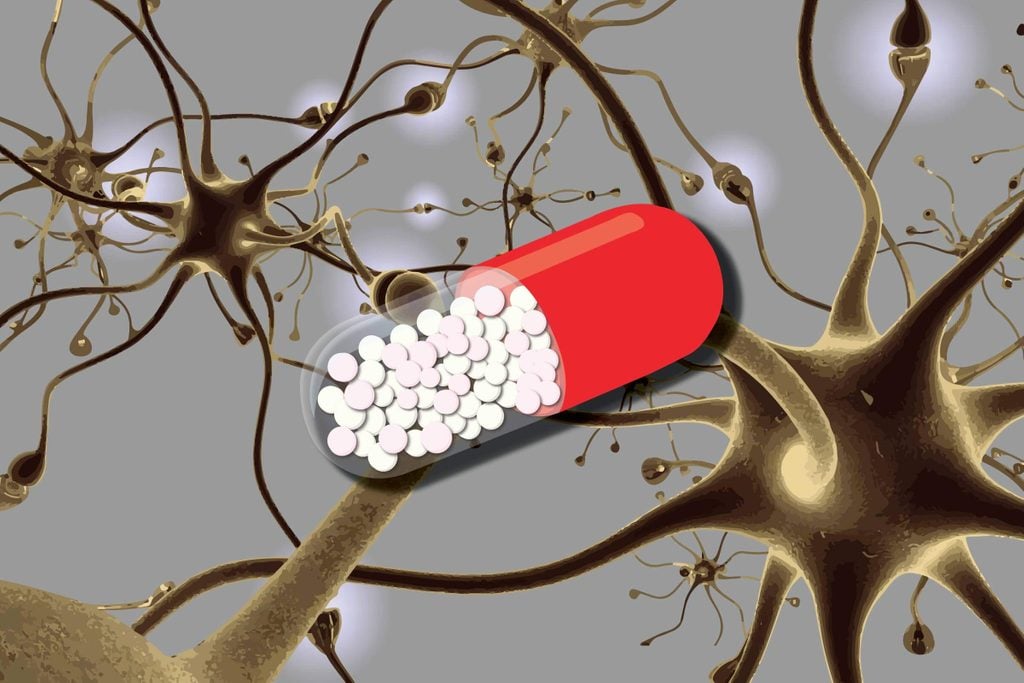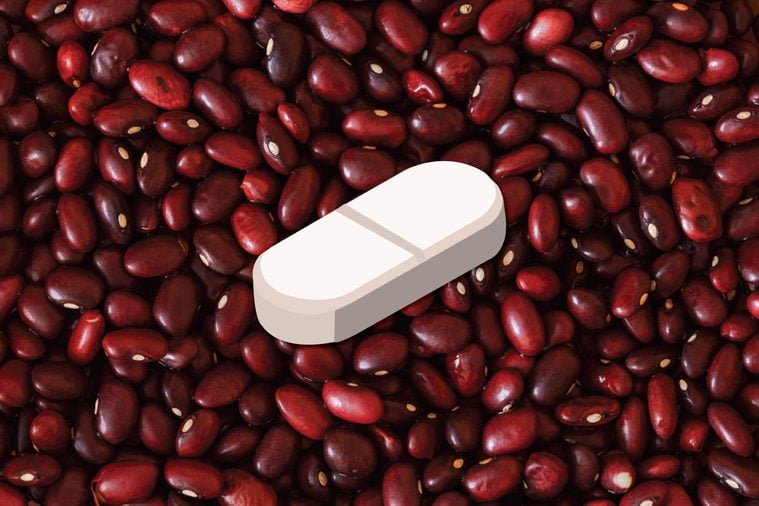Tatiana Ayazo/Rd.com, Shutterstock
Folate
This necessary nutrient, which also goes by the name of folic acid or vitamin B9, helps the body in the creation of new cells. This is one of the reasons it’s so important for pregnant women to get their fair share. In fact, pregnant women experiencing a vitamin B9 deficiency are at risk for delivering a baby with neural tube defects such as anencephaly and spina bifida. Additionally, a deficiency can cause depression. “Folic acid can help synthesize serotonin, which is a neurotransmitter involved in mood regulation,” says Kerri Axelrod, a certified holistic health and wellness counselor and yoga instructor at Kerri Axelrod Wellness in Boston. Aim for 400 mcg per day of folic acid, which is the recommended dosage from the National Institutes of Health.
Buy now
Tatiana Ayazo/Rd.com, Shutterstock
Magnesium
Magnesium helps with relaxation, muscle tension, and constipation. It also plays a key role in the productions of brain hormones, explains Trattner. According to the National Institutes of Health, magnesium-rich foods include almonds, spinach, cashews, avocado, and black beans. However, they also state that supplements can help boost low levels. Consider taking a supplement of 320 to 450 mg daily, especially at night to help with insomnia, suggests Warren.
Buy now
Tatiana Ayazo/Rd.com, Shutterstock
Vitamin C
“Studies have shown a significant reduction in anxiety and depression when sufficient levels of C were taken, either by diet or supplements,” says Warren. One small study, published in a 2018 issue of the journal Antioxidants, assessed vitamin C levels among men aged 18-35 years. It noted that “high vitamin C status may be associated with improved overall mood in young adult males.” However, vitamin C is a water-soluble vitamin. Therefore, the body doesn’t store this vitamin. So be sure to take it regularly to ensure regular healthy levels. Doing so may boost your mood and result in a host of other health benefits. She recommends a minimum of 100 mg daily and no more than 2000 mg per day. Any more than that may cause diarrhea.
Buy now































